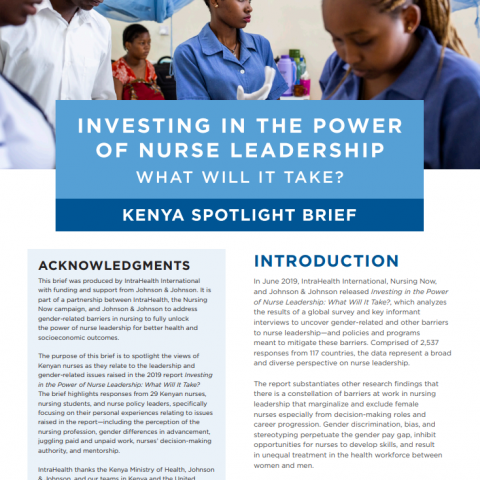Where We Work
See our interactive map

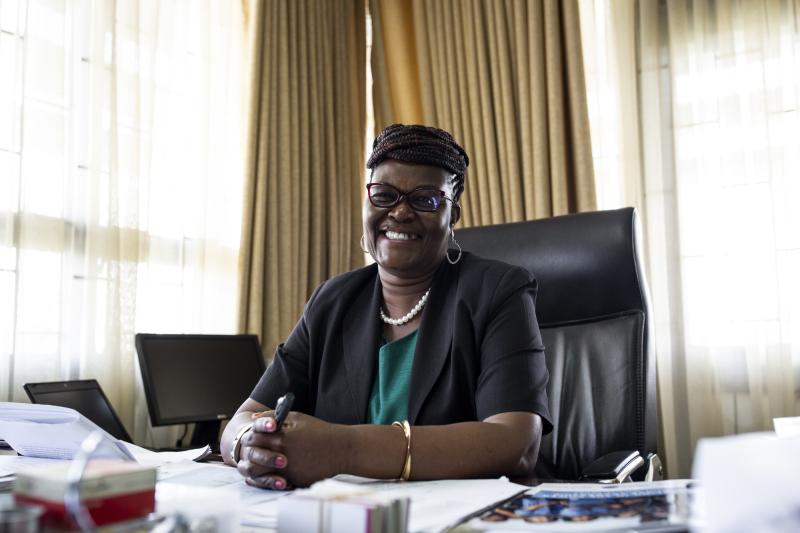
Dr. Mary Nandili is director of nursing services in Kenya. Photo by Patrick Meinhardt for IntraHealth International.
If it's in the policy, it's easier to reinforce. So now the policy's my priority.
Dr. Mary Nandili is the director of nursing services at the Kenya Ministry of Health, the highest-level nurse in the country. IntraHealth collaborates with Dr. Nandili and the Ministry of Health to deliver on its mandate to increase the graduating health workforce and improve the management of health workforce, including nurses. She sat down with us to talk about nurse leadership in Kenya and how she draws on her own experience to tackle challenges nurses face.
This piece is part of our special content series, Nurse Leadership: In Their Own Words.
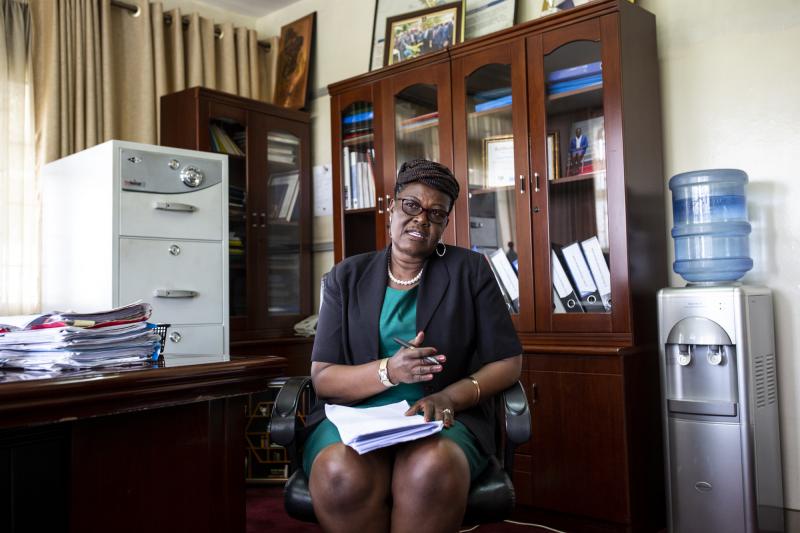
Dr. Nandili sits in Kenya's Ministry of Health and is responsible for the leadership and governance of nursing services in the country. Photo by Patrick Meinhardt for IntraHealth International.
When I grew up, that was the time parents could ask their children to take a certain profession. I remember my father telling me, "I want you to be a nurse so that you take care of the family when they are sick. Be kind to the people you serve, and also make sure that you're empathetic.” Later, I learned that I'm too sympathetic--when a patient is extremely sick or almost at the point of dying, I shed tears.
Now, I'm proud that I've risen through the ranks to this level. I'm also proud that, globally, I've fitted quite well. I've consulted as a nurse in different countries, like in Rwanda, Philippines, Thailand, and for the UNDP, UNFPA, UNICEF, and the WHO. So I'm proud to be a nurse. And I believe when I leave this office, I'll still serve as a nurse somewhere.
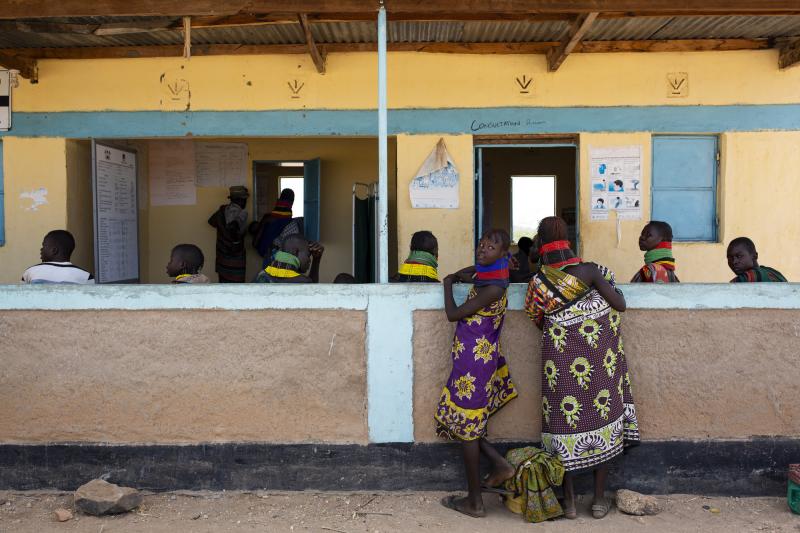
People wait to be seen by the nurse-in-charge at Kangalita Dispensary in Turkana. Kenya faces a shortage of about 90,000 nurses, mostly in rural areas, by 2030. Photo by Patrick Meinhardt for IntraHealth International.
I was in the rural setting. I worked in the village in the extreme rural [areas] outside the city. Then I moved gradually to the urban setting. I've worked in Kenyatta National Hospital. I've worked in district hospitals. So I've experienced working all through different facilities and levels.
Previously, we used to have many nurses. The ratio could be at least five or ten to about 100 [patients]. Now there's a huge, huge shortage, not only in Kenya but globally. We are utilizing the watchmen, the cooks, the drivers, so that they do some simple jobs for nurses.
I worked alone in a dispensary. I worked alone in a health center. One thing I like with the Kenyan nurses, they're very enthusiastic. You can be alone, but you can give all the possible service and support to the patients you are serving.
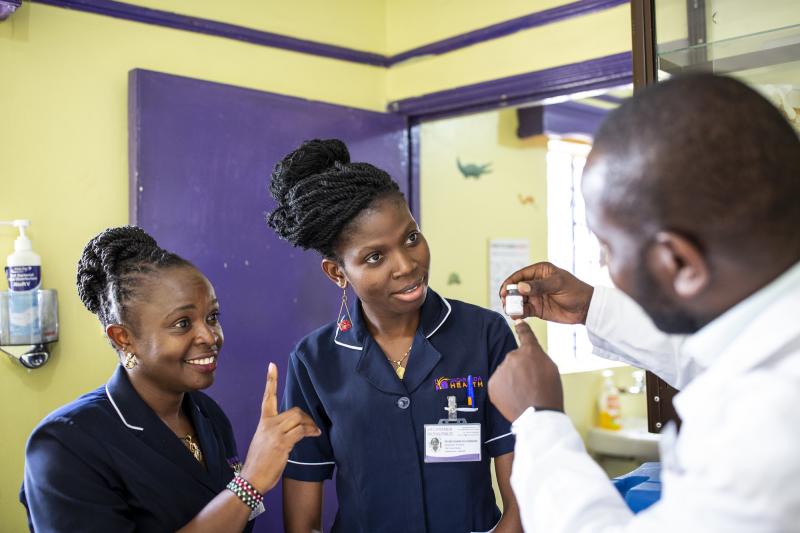
Nurses Jane Kajehaat (left) and Velma Chimwani (middle) at Jacaranda Maternity in Nairobi. Photo by Patrick Meinhardt for IntraHealth International.
When I grew up nursing was very much respected. There was that fear. You'd see a matron [a senior nurse], you’d look for where to hide. Even medical officers used to fear matrons.
We call them “in-charges” at that level now, the facility level. With time, the nurses retired without mentoring others. That's where I noted a gap as I was growing through the ranks… They didn't pass their skills, nurture their colleagues, mentor their colleagues.
That gap led to other professions taking the advantage. I think it has really brought nursing down to the sense that it has demoralized the nursing fraternity. It may take a little bit of time to correct this issue.
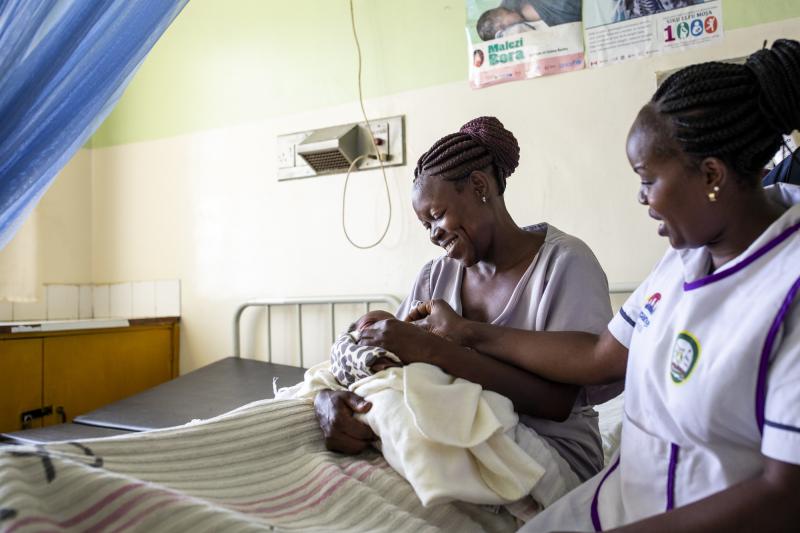
Nurse Florence Wanjiru Joel helps a mother and her baby at Mathare North Health Center in Nairobi. Photo by Patrick Meinhardt for IntraHealth International.
You see, nursing is a female-dominated profession. People will always underlook and think that a woman does not know anything. That’s the culture in the African setting.
But we have an upper hand. We can drive the economy of a nation because we are service providers. Not only in our home settings, but in hospitals or wherever your workplace. That is a very big gap that the nation and other people should know. Women are very important, but we are underlooked, and that has been our culture.
The only way to correct it is to get support from the political wing. If we get support from the political wing, we'll get strong leadership support, especially from the mother ministry [the Ministry of Health], I think we can be able to move on.
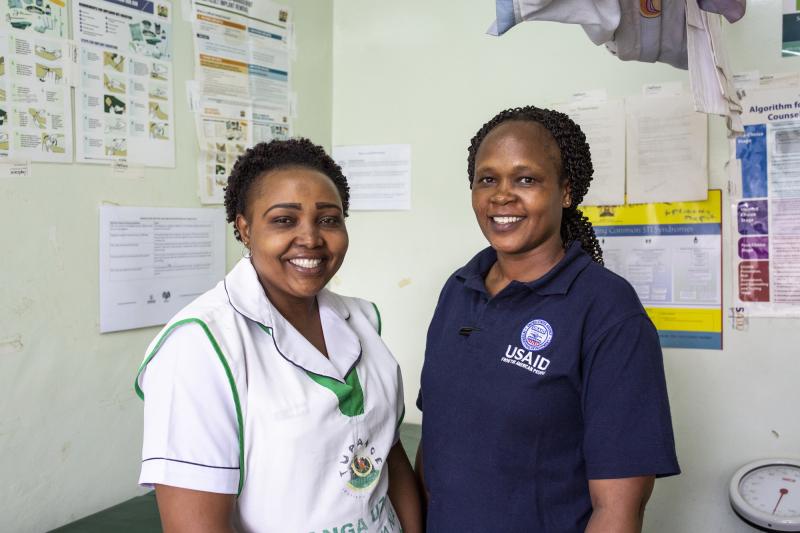
At Mathare North Health Center, Nurse-in-Charge Beth Washire (right) mentors nurse Rachel Waithira Kamori (left). Photo by Patrick Meinhardt for IntraHealth International.
If we can identify senior nurses, most of them retired, we can utilize them. They are still energetic and have a lot of knowledge that can be transmitted to these young nurses. How do we motivate these young nurses so that they can accept and impress the profession? That is something that we should think about and see how we can support them.
Otherwise, I think we may lose many nurses because after their degree, they're changing to other careers, completely different, law or they take up something else, like communications. I feel we need to mentor these nurses, and the best idea is to get the retired nurses, the former chiefs.
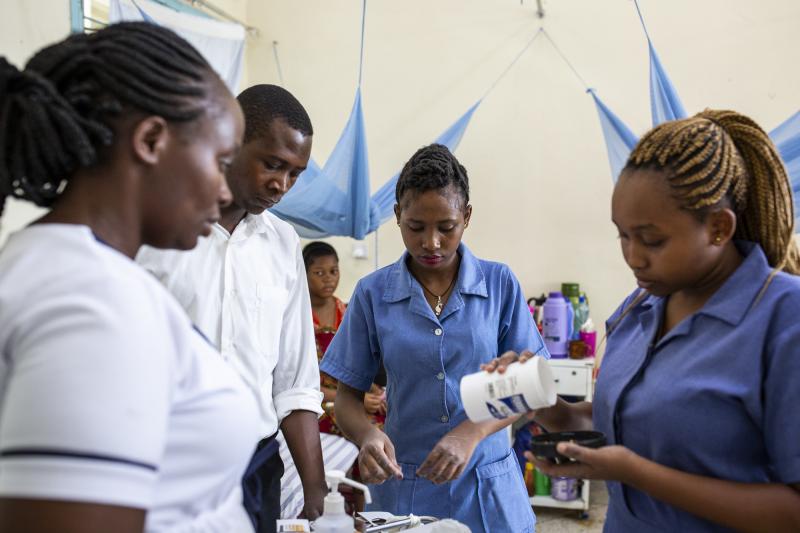
Nurses do the morning round in the Maternity Ward at Lodwar Referral Hospital in Turkana County. Photo by Patrick Meinhardt for IntraHealth International.
It was difficult. You could stay a whole day without going home to breastfeed. Also, remember, if you're working in a hospital [around infectious diseases], you cannot leave in between to go and breastfeed and come back. Definitely, you'll transmit the infections to your household, so it was difficult for me.
As a family, you have to balance in a way. What I've learned from my colleagues who are in the hospitals, they leave when they are kind of burned out. By the time she reaches the house, she's not able to support the family as required. Personally, at times when you leave work, you are not happy.
In Africa, Kenya, we still have that culture where you as a mother, you're supposed to do literally everything. Our kids who are growing up are the people who are bringing change. We are still overburdened as women, and as a nurse.
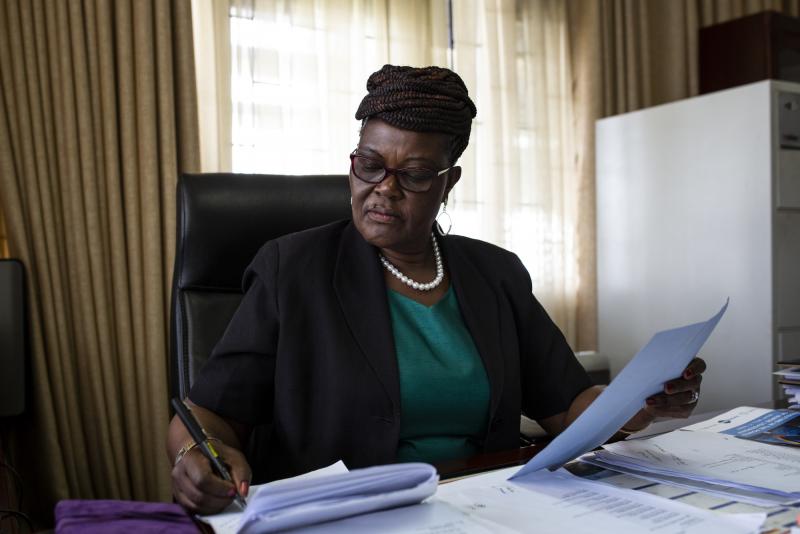
Mary Nandili is now working to amend Kenya’s scheme of service for nurses, which sets out strict qualifications for advancement to the next level. Photo by Patrick Meinhardt for IntraHealth International.
If it's in the policy, it's easier to reinforce. You know what has locked us is this scheme of service.
The moment we amend this scheme of service, nurses can compete for any positions. We can open up even those who are in the counties or in the private sector, as long as they have served the government and know the government procedures.
Unless you are in the government, you cannot apply for this position because of the scheme of service, which locks most nurses out of promotions, and they cannot take lead. That has hindered many nurses from moving forward. You cannot go beyond a certain job, whether you have the best credentials possible. Many nurses have been stagnant for long, serving for 15 or 20 years without moving, getting any promotion. Indeed, it has been very demoralizing.
Now the policy's my priority. If we have the policy, it will not be difficult to amend the scheme of service because the scheme of service amendment will destine what is in the policy. Then the moment we have the policy, we'll now review the act, the nurses act and adjust it.
READ what nurses in Kenya say about leadership and gender-related issues in Investing in the Power of Nurse Leadership: Kenya Spotlight Brief.
Samantha Rick and Wycliffe Omaanya interviewed Dr. Nandili just before the COVID-19 pandemic lock down. Carol Bales edited Mary’s interview for clarity and length. All photos by Patrick Meinhardt for IntraHealth International. All work related to this post and the Kenya brief was funded by a grant from Johnson & Johnson Foundation.
Get the latest updates from the blog and eNews
Read what nurses in Kenya say about nursing leadership in Investing in the Power of Nurse Leadership: Kenya Spotlight Brief. Twenty-nine nurses, nursing students, and nurse policy leaders shared their personal experiences including gender differences in advancement, juggling paid and unpaid work, decision-making authority, and mentorship.
